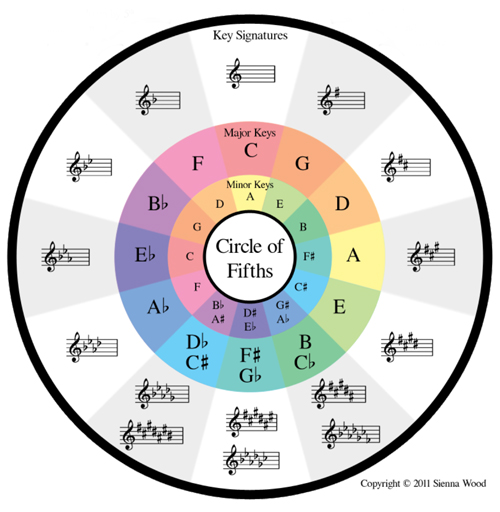
|
When I was a young child just old enough to start having a personality and for people to begin talking about my future, the family thought that I would become a lawyer. In this, I would be following the path of my maternal grandfather, who at the time was the county judge in his rural Pennsylvania community. And my father’s sister had studied law before she found her true calling as a dog breeder.1 I think my father hoped at least one of his two boys would become an engineer, as he was a mechanical engineer and his own father a civil engineer. But I was verbally inclined and math impaired, while my brother seemed to be aimed at a life that was more philosophically and socially oriented, like becoming a psychiatrist or a minister.
This notion—it was never more than a far-off thought—that I would eventually study law persisted through my days in grade school and junior high school. I wasn’t wedded to it, didn’t think much about it, just accepted it as one possible future. And then, at about the age of twelve, I thought of writing a book. It was a wretched thing of four typewritten pages with only a beginning and no plot, which I then bound in cardboard-and-crayon covers.2 The writing bug bit lightly that time. But four years later I wrote a science fiction novel of 472 pages typed double-spaced, with carbon paper, after writing the first draft on a tablet with a fountain pen. It was a space opera with lots of battles and an historic love affair, and still a wretched thing.3 But by then the bug had hold of me, and thoughts of studying law disappeared into the cobwebs.
And yet, I wonder what my life would have been if I had majored in pre-law rather than English in college, gone on to law school if the money had been there, and started on the working life of a lawyer.
I think I might have been a good one. I have a proven facility with language, and I studied Latin in junior high and high school—a residue of early preparation for that possible career path. I learned through my coursework and the teaching of my parents to think logically, and I can follow complicated chains of reasoning—something that also helps when you’re plotting a novel that doesn’t suffer from lapses in causation and unanswered questions. I have a good memory for facts and can relate them in a meaningful way. And finally, I have the capacity for hard, sustained brain work, as shown by my years as an editor and writer, where I had to churn out masses of technically accurate copy on tight deadlines.
But I lacked some of the emotional or spiritual elements that a lawyer must have. First, I am not very competitive. Although I play wargames with my miniatures gaming group, winning is not that important to me; I more enjoy the camaraderie and social contact of play. And I can learn more from an intelligent loss, or from taking a risk that turned out badly, than I can from a lucky win. A good courtroom lawyer must want to win, have a visceral need to convince a judge or jury of his or her own side of the argument, and an almost hormonal resistance to failure, even to giving up and letting go in the face of overwhelming loss.
Second, I am not much of a partisan. I do not naturally take one side against another but instead seek to understand what is true—that is, closely adhering to known facts—fair to all concerned, and right. Of course, “right” is a slippery concept, especially these days, but I use the word to mean consistent with the course of action that a rational and good-hearted person would take without personal bias and by adhering to a sense of conscience or honor. I will not knowingly cheat to win—although sometimes I might not fully understand the rules of the game and the etiquette of play. I won’t support my own team if my teammates cheat or bend the rules, and I feel a strong need to call out their infractions. In this, I am more interested in fairness and right action than in a certain specified outcome. But a good courtroom lawyer is supposed to adopt his or her client’s position and put aside notions of impartiality and fairness. I know that a lawyer is not, as a matter of ethics and good conscience, allowed to represent a client whom he or she believes to be guilty—or prosecute one known to be innocent—but sometimes an attorney paid to represent a side must close his or her eyes and mind to certain facts in order to defend a client or prosecute a case.
My respect for the truth—that adherence to facts—is based on my sense that the only things standing between me, my sanity, my soul, and utter chaos are my ability to see and interpret the current situation clearly, review the facts involved impartially, make a correct judgment in good conscience, and pursue the appropriate course with a strong will. If I start putting facts aside, succumbing to bias, or participating in a lie, then I will lose my mental and emotional bearings in the world. That way lies error, darkness, and confusion.
But not all lawyers work in courtrooms and do battle on such clear ground and against known opponents. Some work in a corporate capacity, researching cases and precedents, negotiating and writing contracts, filing and defending patents, and performing other work that is less adversarial. I might have been good at this form of practice, except that I have a visceral, almost hormonal, allegiance to clarity of thought and expression. As a writer, I care most for communicating the idea or concept behind an article or story in a way that the “intelligent, well-read layman” can understand. I look for a direct line through the reader’s doubts and internal objections to place that idea or concept inside his or her brain and make it come alive. I don’t set traps for the reader—not unless I am creating an intentional mystery or a surprise ending, which upon discovery is meant to be pleasurable for the reader, teasing his or her perceptions and providing the Aha! factor. After years of work, I have learned to create and manage evocative similes and metaphors, so that the reader can associate that new idea or concept with something he or she already knows and understands. I use supporting facts and arguments selectively and judiciously, rather than exhaustively, as if hoping that one will convince if another does not. And in the realm of science fiction and fantasy, my goal is to create an interesting plausibility, rather than a technically accurate but boring possibility.
This dedication to clear and effective communication can be the death of contract work, which strives instead to identify and address all the possible issues and contingencies that might hinder or harm the corporation’s interests. That sort of defensive thinking—while it does require a bit of imagination and intuition—is too narrow and not very interesting for me as a writer. I would rather be a maker of dreams than of mousetraps.
I think that if I had followed my early career plan, gone to law school, and tried to work as a lawyer, I might have been reasonably good at it. I could have learned to suppress my emotions and natural inclinations, as every adult must do at some stage in life and always in critical situations. But the effort would have gone against my grain. And at the end of my life—which I am now approaching—I believe I would have felt empty and dissatisfied, however much money I had made.
My career as a writer, editor, and communicator—and then as a creator of novel-length fiction—has not always been everything I dreamed of as a young man. But I feel that I’ve done good and honest work, for which I have been adequately paid. I haven’t had to hurt anyone along the way. And I have not been asked to lie—fail to adhere to known facts—except as any teller of stories and weaver of fictions tells lies in the service of a more important truth.
1. These days we tend to look down on the profession of dog breeding, because at one extreme we are warned against large, commercial “puppy mills” and, at the other end of the scale, we pity the ambitious family that owns a purebred animal and every year tries to sell a litter of puppies for small profit. My aunt ran a boarding kennel outside of Philadelphia and teamed with a veterinarian on the site. She started by breeding cocker spaniels and then went to poodles for show and sale. She had a “breeders” eye and could look at two candidate animals and anticipate their offspring. It was this skill that allowed our hunter-gatherer forebears to selectively modify wild animals and plants and create the new lifestyle of settled agriculture.
2. The essence of the idea was that a steam locomotive in the Old West had come out of a tunnel with everyone aboard dead. It was going to be a murder mystery—but I never could figure out what caused them all to die. Later, when I became an editor at a publisher of Western Americana, I learned that early railroad tunnels through the Sierra Nevada were so long that engine crews would become asphyxiated. This inspired the Southern Pacific to develop the cab forward steam locomotive. But at the age of twelve I didn’t know I had identified an historical problem; I was looking for some kind of hijacking based on mass poisoning.
3. In writing, there are no overnight successes. Anyone who publishes a brilliant first novel has at least three attempted manuscripts in a drawer somewhere that never did—and never should—see the light of day. It takes time to learn this craft.



